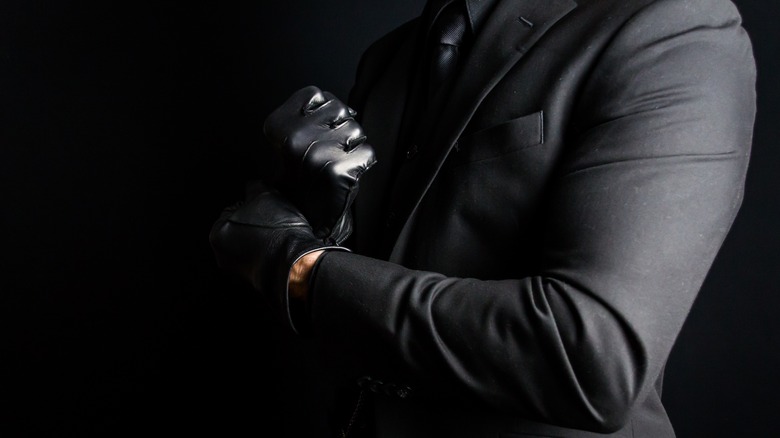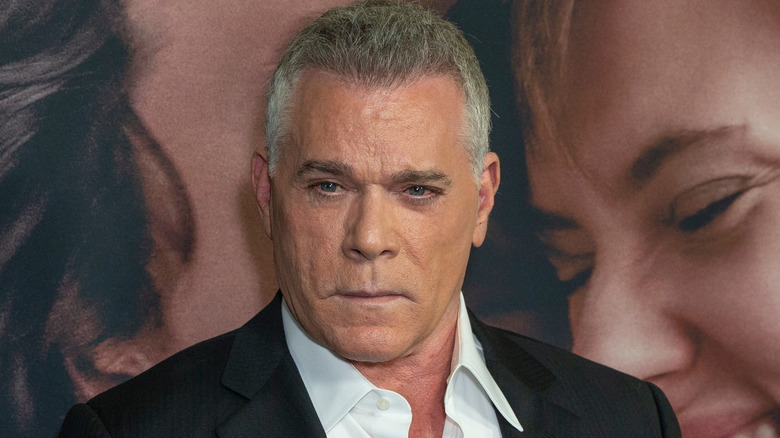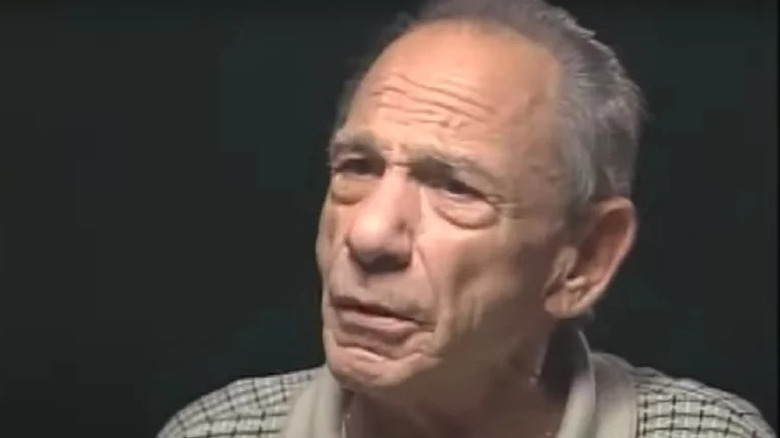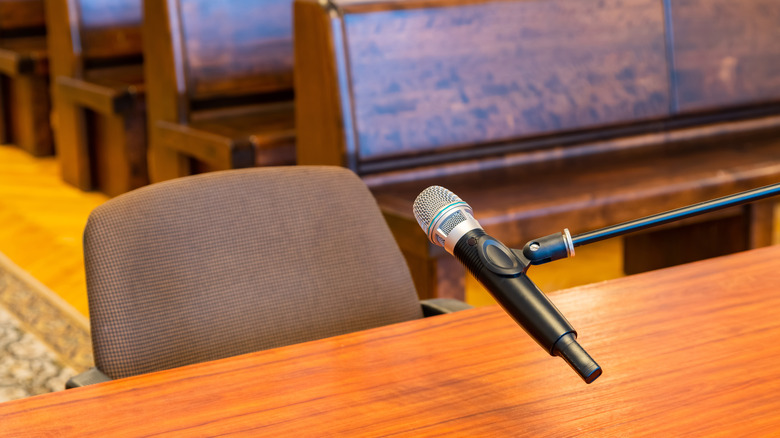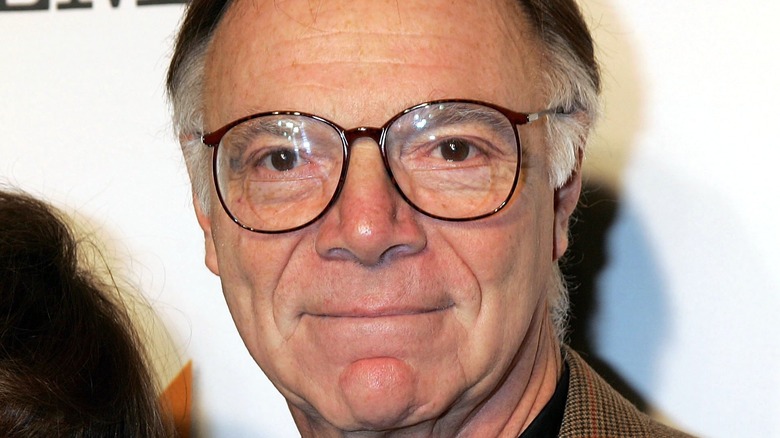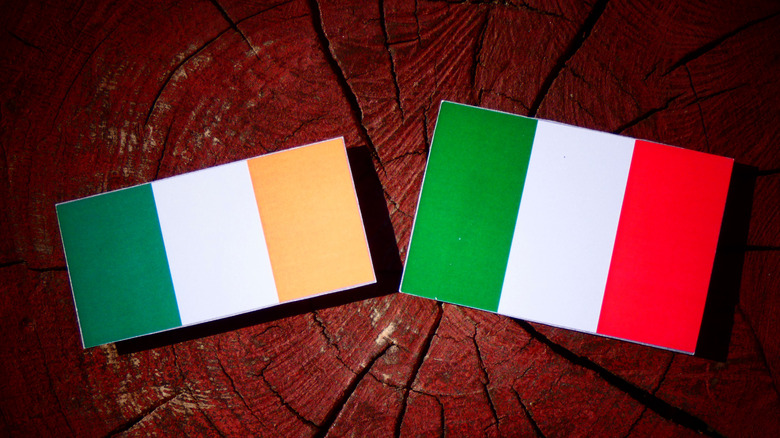The Truth About Mobster Henry Hill
In the 1990 classic crime film "Goodfellas", Henry Hill's life is presented as the quintessential American rags-to-riches story, told from the perspective of a former Lucchese crime associate turned FBI informant. After reading "Wiseguy," the 1985 Nicholas Pileggi book based on Hill's life, director Martin Scorsese adapted it into "Goodfellas," a full-length feature that brought audiences into the world of organized crime. The film turned Hill (played by Ray Liotta) into one of the most well-known members of the Italian mafia, and he eventually became a staple of pop culture. While many know of Hill's life from the film, there was a crucial amount of information that was either left out or fictionalized.
Many remember what the BBC calls "The Copa Shot," the epic single-take shot in "Goodfellas" of Hill escorting his then-girlfriend Karen (played by Lorraine Bracco) through the Copacabana night club in New York City. The truth behind that scene was questioned by former Colombo mob associate and reformed criminal mastermind Michael Franzese. During one of his podcasts (as posted on YouTube), Franzese said Hill would have never walked through the kitchen of the ritzy mob hangout without being accompanied by someone else in his crew, like Paulie Vario (Paul Cicero in the movie). Franzese also mentioned he didn't think Vario and Hill were really that close in real life: "In the movie it was depicted that he was with him, that he knew him, that Paulie treated him like a son. I don't believe that to be true. I knew those guys, I knew that crew fairly well."
Henry Hill's life depicted in the movie
While Hill's relationship with Paul Vario may be questionable, Franzese did admit that Hill was close with Tommy DeSimone and Jimmy Burke: "He ... was part of Jimmy Burke's crew. He did know Tommy DeSimone, obviously." Burke — whose last name was changed to Conway for the film — was played by Robert De Niro, while Tommy DeSimone — last name changed to DeVito — was played by Joe Pesci, who also received an Oscar for his portrayal. Leading up to meeting Burke and DeSimone, Hill spent a lot of time mingling with mobsters, learning the rules of the mafia world. According to Biography, it's true that Hill began running errands for the mafia at a young age.
Hill's wife, Karen, really was unaware of Hill's connections when they first started dating, but would later accept it once she discovered the truth. The famous Lufthansa heist scene in the movie was also based on true events. At the time, it was the biggest heist ever pulled in America. Those involved ended up stealing $5 million, along with $850,000 in jewelry — with inflation, that would translate to $23 million today.
In the film, it's not mentioned that Hill spent time in the U.S. Army and would be discharged after starting a fight and stealing a sheriff's car. According to ESPN, Hill was the main guy behind the Boston College point shaving scandal during the 1978-79 season.
Henry Hill's life not covered in Goodfellas
Through some of his closest ties, Hill was able to get a few basketball players from Boston College to shave points off the spread so Hill and his crew could bet and make a profit. "It was great," said Hill. "There was a lot of sex, drugs, rock 'n' roll ... and missed shots." After his arrest for narcotics trafficking in 1980, according to ABC News, Hill, his wife Karen, and their children changed their names and relocated 10 times around the country as part of the witness protection program. Henry and Karen would later separate and divorce.
According to the UK's Telegraph (via ABC News), Hill made $550,000 from "Goodfellas" but still owed millions of dollars. "The government said a couple of hundred million dollars went through my hands," Hill said. He added that he made between $15,000 and $40,000 per week but "blew it on slow horses, women, drugs and rock n' roll." Aside from various crime schemes, Hill became a painter and wrote a cookbook called "The Wiseguy Cookbook: My Favorite Recipes From My Life As A Goodfella To Cooking On The Run." Hill would go on to give interviews on many shows such as "The Howard Stern Show," "60 Minutes," and "Locked Up Abroad."
This is why Henry Hill was kicked out of witness protection
At the end of "Goodfellas," it's revealed that after his time as an FBI informant, Hill entered witness protection (via ABC News). According to Biography, this happened some time in 1980. The New York Times writes that he was eventually removed from the program in 1987. There are conflicting reports on why this occurred. Both Biography and All That's interesting state that Hill ended up revealing his true identity, which led him to be kicked out from witness protection. Per Screen Rant, Hill was jailed in 1987 on narcotics charges. They believe that this is what brought on his official removal from witness protection.
However, they note that the year was not 1987 and was instead 1990. A 2012 article from Forbes reiterates this. They report that Hill's addiction to cocaine and his habit of selling drugs was the final nail in the coffin. Whatever the case, Hill was removed and spent over two decades hiding from the mafia (per ABC News). The New York Times reports that towards the end of his life, he publicly lived in Topanga Canyon, California and only occasionally wore a disguise to conceal his identity.
Henry Hill was involved in a lawsuit with the New York State Crime Victims Board
According to Oyez, Hill sold the rights to his life story to Simon and Schuster, a renowned publishing company. The true crime account that resulted from this deal is titled "Wiseguy: Life in a Mafia Family" by Nicholas Pileggi (above) (via Middle Tennessee State University). It later provided the basis for "Goodfellas." The book was a success. In 1987, the New York State Crime Victims Board stated that Hill owed them money on the basis of "Son of Sam Laws." Psychology Today reports that these laws were created in 1977 to prevent criminals from profiting from their crimes from any media deals.
Middle Tennessee State University writes that the New York State Crime Victims Board informed Simon and Schuster that they needed to pay up. Oyez states that the money was to be placed in an escrow account that would later be claimed by Hill's victims through legal action. Simon and Schuster did not oblige and instead sued the New York State Crime Victims Board (per The New York Times).
The publishing company claimed that the "Son of Sam Laws" were violating their free speech rights under the first amendment. Ultimately, the Supreme Court agreed and stated that the board had not thoroughly explained why the victims had to be compensated specifically from the funds made by the book deal instead of other means.
Henry Hill could never be a made man
Screen Rant points out that the term "made man" is repeatedly used in "Goodfellas." According to the National Crime Syndicate, this refers to becoming an initiated member of the mafia through an intense and bloody process. First and foremost, a made man has to be fully Italian (via Biography). Moreover, they are required to be sponsored by another made man as well as carry out a killing requested by the mob. If they were accepted into the family, the individual attends a ceremony where they pledge their allegiance and take an oath. This meant that they could climb up the ranks of the mob, perhaps to eventually become a boss.
Additionally, a made man was given a number of privileges and an astounding amount respect from others. That being said, Henry Hill could never be a made man due to one reason only. All That's Interesting reports that he was only half Italian, which promptly excluded him from the possibility of truly being an official mafia member. Hill was half Sicilian on his mother's side and half Irish from his father. Nonetheless, he became a well-respected associate of the Lucchese family for three decades (per The New York Times). Hill was involved in a number of crimes throughout his life, although Biography writes that in his later years, he stated that he was a changed man.
Henry Hill's anticlimactic death
In 2012, Hill's long life of drugs, gambling, and violence came to a quiet end. Per The Guardian, Henry Hill died at the age of 69 from natural causes. The Independent also blamed years of smoking and his Italian-food-filled diet for his death. CNN states that dying in a Los Angeles hospital is the complete opposite of what Hill envisioned for himself.
He reportedly believed that he was going to be murdered for revenge, as he had "ratted out" several fellow mob members. Moreover, the Orlando Sentinel writes that Hill had revealed on multiple occasions that he had hurt and even killed people. As he put it, "You can try to justify it by saying they deserved it, that they had it coming, but some just got whacked for absolutely no reason at all."
Nevertheless, Hill's fear never came true. The Guardian states that there are several reasons why he was not assassinated. Theories include that Hill exaggerated his crimes or that the mob was simply too disorganized to call the hit. Others note that he had gained too much fame to be killed. In fact, CNN notes that until the release of "Goodfellas," he was living in anonymity.
